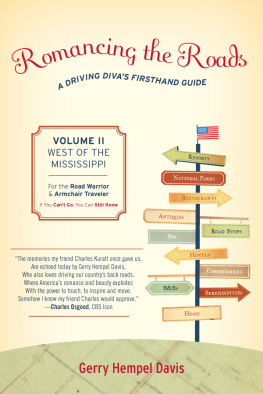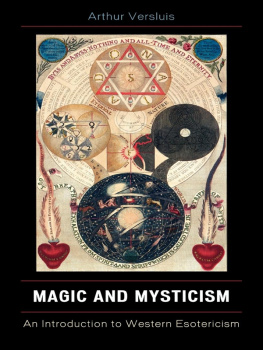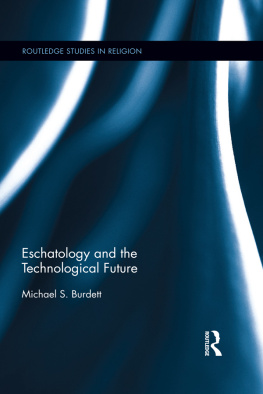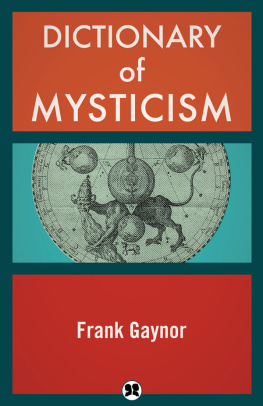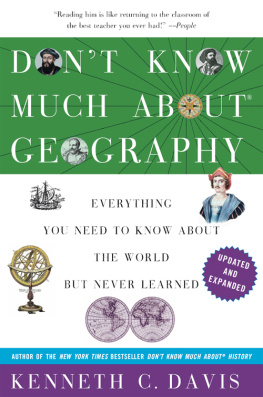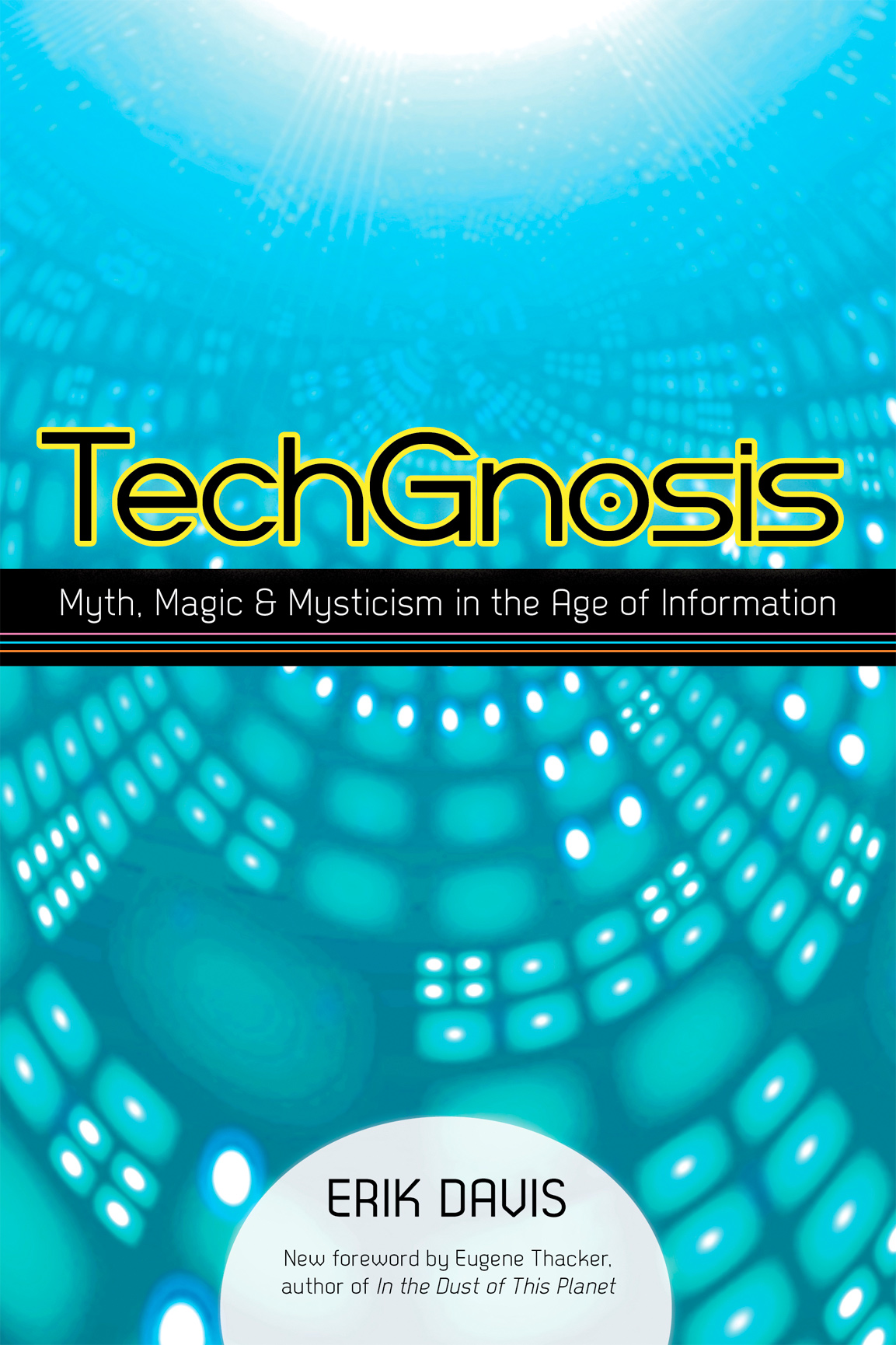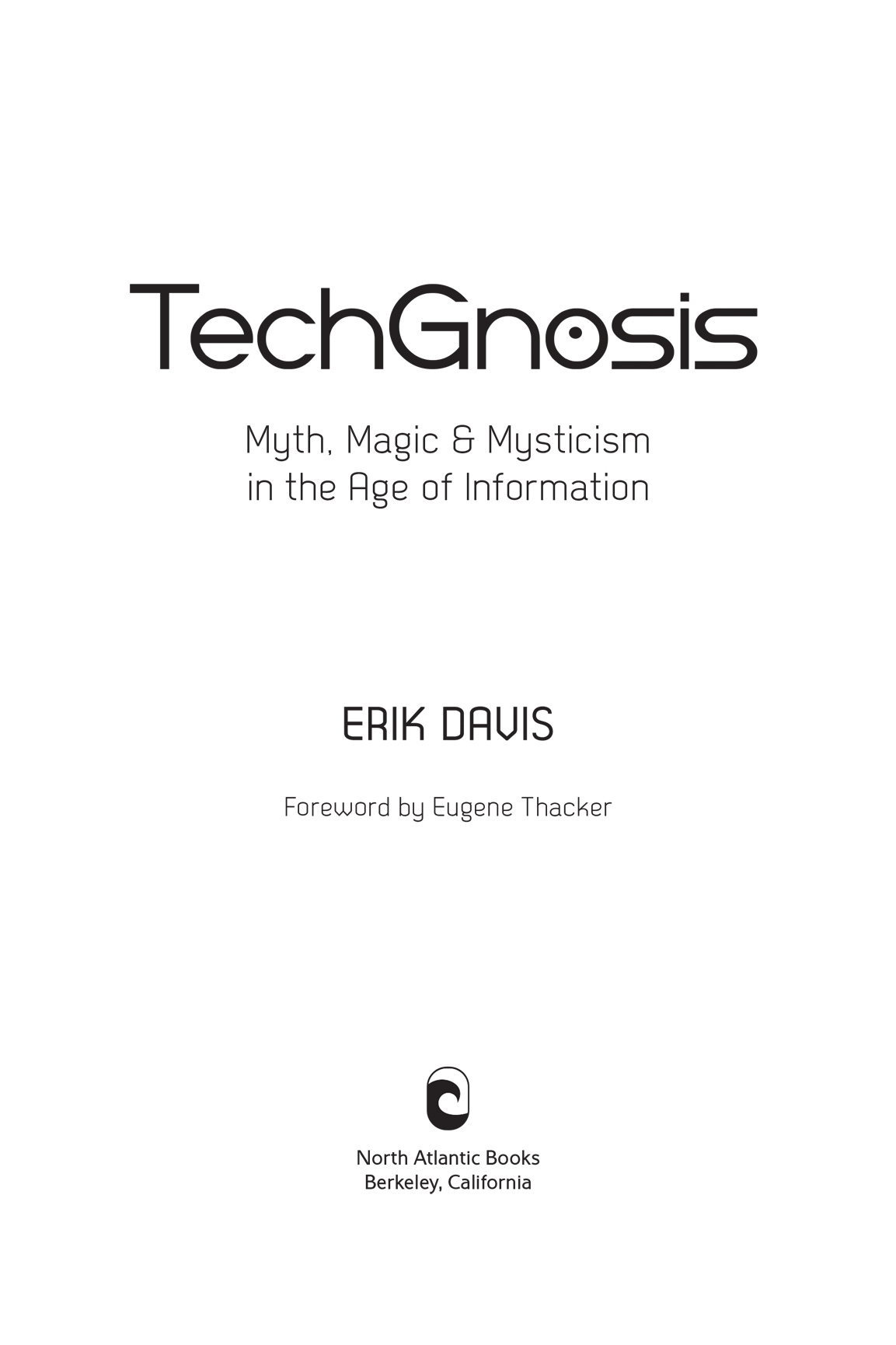Praise for TechGnosis
TechGnosis is stimulating and original, learned and readable. Erik Davis offers a wide-ranging and consistently thought-provoking guide to the hidden circuitry of the technological unconscious. Invaluable.
Geoff Dyer, author of Yoga for People Who Cant Be Bothered to Do It
Erik Daviss compendious recitation of the history of communications technology dominates the discursive landscape of techno-exegesis like a Martian war machine. In the grand style of H. G. Wells, TechGnosis is an apocalyptic synopsis of technological climax.
Terence McKenna, author of The Archaic Revival
TechGnosis is a dazzling, sweeping look at the metaphysical urges underlying our technological progress. From exploring the Singularity to positioning man as the spiritual cyborg, Erik Davis reveals our technological subconscious and writes with a flair that crackles the mind. I love this book.
Jason Silva, Emmy-nominated host of National Geographic channels BrainGames and creator of Shots of Awe
Before The Matrix , there was TechGnosis the classic and still-pioneering text on the historical and creative interfaces between the technological, the magical, and the mystical.
Jeffrey J. Kripal, author of Mutants and Mystics: Science Fiction, Superhero Comics, and the Paranormal
TechGnosis is a tour de force of scholarship, insight, and juicy writing. Like McLuhan, Erik Davis sheds light on the shadowsthe places weve neglected to look, or have feared to look, in our search for the meaning of human invention.
Howard Rheingold, author of The Virtual Community: Homesteading on the Electronic Frontier
TechGnosis is a delirious and exhilarating exploration of the metascapes of new mind and new nature. Pungent and profound, the writing is pure alchemy, and the reader is redesigned in the very act of reading. This is perhaps the best book written on where we are going and how we got there.
Jean Houston, author of A Mythic Life
Religion constitutes the perfect content provider (its already virtual) and techgnosis makes the perfect religion for a world where Capital is god. But before you sign up to download your consciousness, better read Erik Davis.
Hakim Bey, author of T.A.Z .
Davis takes on subjects that would appear to be ridiculous in the hands of a lesser writer and renders them appropriately sublime.
R. U. Sirius, cofounder and editor of Mondo 2000
TechGnosis is at once an EEG of our silicon unconscious and a recovered memory of sacred technologies. Erudite but wired to the eyeballs, Davis is that rare blend: a postmodern classicist, equally at home with ancient automata and alien autopsies. A true believer in the politics of myth, hes mindful, nonetheless, of the social issues that haunt our techno-eschatologies. Erik Davis is the perfect tour guide to our Disneyland of the Gods.
Mark Dery, editor of Flame Wars and author of Escape Velocity and I Must Not Think Bad Thoughts
I guess you could say Erik Davis is a secret agent of informational change, but make sure you have your mirror shades on, cause the information is crisp and thoughtful, sharp as a monomolecular razor, and basically just straight up ridiculously well researchedall while being accessible and fun to read. Not since Jeremy Campbellss groundbreaking Grammatical Man have we had as diverse and engaging a book on the linkages of information and culture, and how the two shape and mold each other. Daviss book cuts through the jargon and empty rhetoric of electro-theory and goes beyond all the clichs of a culture of total amnesia. A new Rosetta Stone for the Digerati.
Paul Miller aka DJ Spooky
Copyright 2015 by Erik Davis. All rights reserved. No portion of this book, except for brief review, may be reproduced, stored in a retrieval system, or transmitted in any form or by any meanselectronic, mechanical, photocopying, recording, or otherwisewithout the written permission of the publisher. For information contact North Atlantic Books.
Published by
North Atlantic Books
P.O. Box 12327
Berkeley, California 94712
Cover art or photo by Fotosearch Illustration/SuperStock
Cover and book design by Howie Severson
Printed in the United States of America
TechGnosis: Myth, Magic, and Mysticism in the Age of Information is sponsored by the Society for the Study of Native Arts and Sciences, a nonprofit educational corporation whose goals are to develop an educational and cross-cultural perspective linking various scientific, social, and artistic fields; to nurture a holistic view of arts, sciences, humanities, and healing; and to publish and distribute literature on the relationship of mind, body, and nature.
North Atlantic Books publications are available through most bookstores. For further information, visit our website at www.northatlanticbooks.com or call 800-733-3000.
Library of Congress Cataloging-in-Publication Data
Davis, Erik.
TechGnosis : myth, magic, and mysticism in the age of information /
Erik Davis.
pages cm
Includes bibliographical references and index.
Summary: A reissue of a classic media studies book exploring the connection between digital and spiritual realms and their effects on technological communication Provided by publisher.
eBook ISBN: 978-1-58394-931-3
Trade Paperback ISBN: 978-1-58394-930-6
1. Information technologyReligious aspects. 2. Technological innovationsSocial aspects. 3. Information technologySocial aspects. I. Title.
BL265.I54D38 2015
303.4833dc23
2014035166
v3.1
Contents
Acknowledgments
I t would be impossible to fully trace the network of minds and hearts that helped bring this book into being, but some specific shout-outs are definitely in order. A number of the ideas animating TechGnosis have been pulsing in my brain for nearly a decade, and I am indebted to a handful of teachers and editors who have helped me shape them into worthy prose at various stages of my writing career: my undergraduate thesis advisers at Yale, Richard Halpern and David Rodowick; former Village Voice editors Jeff Salamon, Scott Malcolmson, Lisa Kennedy, and Joe Levy; Gnosis editors Jay Kinney and Richard Smoley; and ace cybercritic Mark Dery, who asked me to write the essay that formed the seed crystal for the present work. Even more invaluable have been the countless kaleidoscopic conversations about philosophy, science, and spirit I have had over the years with my great friends Julian Dibbell, JP Harpignies, and Marcus Boon, all of whom challenged me to find my own weird path into technoculture and to face the difficulties of writing it down head-on.
My buddy Dan Levy harangued me into shaping my stray thoughts into a book project, and then convinced someone to actually buy it. Relationships with huge and distant corporations can be rocky: thanks to Harmony editors Andrew Stuart, who swooped in midway to save the day with his generous attention and sharp suggestions, and Peter Guzzardi, who kindly shepherded TechGnosis through the end game. The book you hold would be a flabbier and more error-ridden thing were it not for the perceptions, pens, and pencils of my manuscript readers, who, if they have not already been mentioned, include Margaret Wertheim, papa Russ Davis, Rachel Koenig, David Ulansey, Jeff Gorvetzian, and my mother, Sandra Zarcades, who lent her razor-sharp copyediting skills to many of its drafts.
Wef Linson helped me keep perspective throughout the daily grind with his spiritual ruminations and carefree cracks, while the Midtown Niki Starving Writers Fund allowed me to focus on the task at hand. Thanks as well to the large circle of comrades and netminds who took the time to swap ideas, give me encouragement, or feed me nifty memes: Peter Lamborn Wilson, Mark Pesce, Scott Durham, Spiros Antonopoulos, Molly McGarry, Manuel DeLanda, Hermano Vianna Jr., Jordan Gruber, Terence McKenna, Charles Cameron, Tom Lane, James OMeara, Paul Miller, Kate Ramsey, Konrad Becker, Craig Baldwin, Sam Webster, Mark Stahlman, and Grampa Jake, who sent me a steady stream of juicy newspaper clippings from the desert heartland. In particular, Pit Schultz, Diana McCarty, and the nettime crew plugged me into a community of technology critics whose trenchant debates helped me keep my cosmological feet on the ground.



